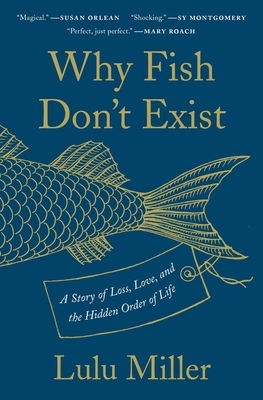Scan barcode

228 pages • first pub 2020 (editions)
ISBN/UID: 9781501160349
Format: Paperback
Language: English
Publisher: Simon & Schuster
Publication date: 06 April 2021

Description
A "remarkable" (Los Angeles Times), "seductive" (The Wall Street Journal) debut from the new cohost of Radiolab, Why Fish Don't Exist is a dark and astonishing tale of love, chaos, scientific obsession, and--possibly--even murder."At one point, M...
Community Reviews Summary of 7,437 reviews
Moods
reflective 76%
emotional 42%
hopeful 39%
inspiring 38%
challenging 24%
dark 15%
funny 15%
adventurous 12%
sad 11%
mysterious 6%
lighthearted 3%
relaxing 2%
tense 1%
Pace
fast 25%
slow 13%
Average rating
Content Warnings
Submitted by users as part of their reviews
Graphic
Suicidal thoughts, Ableism, Forced institutionalizationModerate
Medical trauma, Suicide attempt, RacismMinor
Rape
228 pages • first pub 2020 (editions)
ISBN/UID: 9781501160349
Format: Paperback
Language: English
Publisher: Simon & Schuster
Publication date: 06 April 2021

Description
A "remarkable" (Los Angeles Times), "seductive" (The Wall Street Journal) debut from the new cohost of Radiolab, Why Fish Don't Exist is a dark and astonishing tale of love, chaos, scientific obsession, and--possibly--even murder."At one point, M...
Community Reviews Summary of 7,437 reviews
Moods
reflective 76%
emotional 42%
hopeful 39%
inspiring 38%
challenging 24%
dark 15%
funny 15%
adventurous 12%
sad 11%
mysterious 6%
lighthearted 3%
relaxing 2%
tense 1%
Pace
fast 25%
slow 13%
Average rating
Content Warnings
Submitted by users as part of their reviews
Graphic
Suicidal thoughts, Ableism, Forced institutionalizationModerate
Medical trauma, Suicide attempt, RacismMinor
Rape